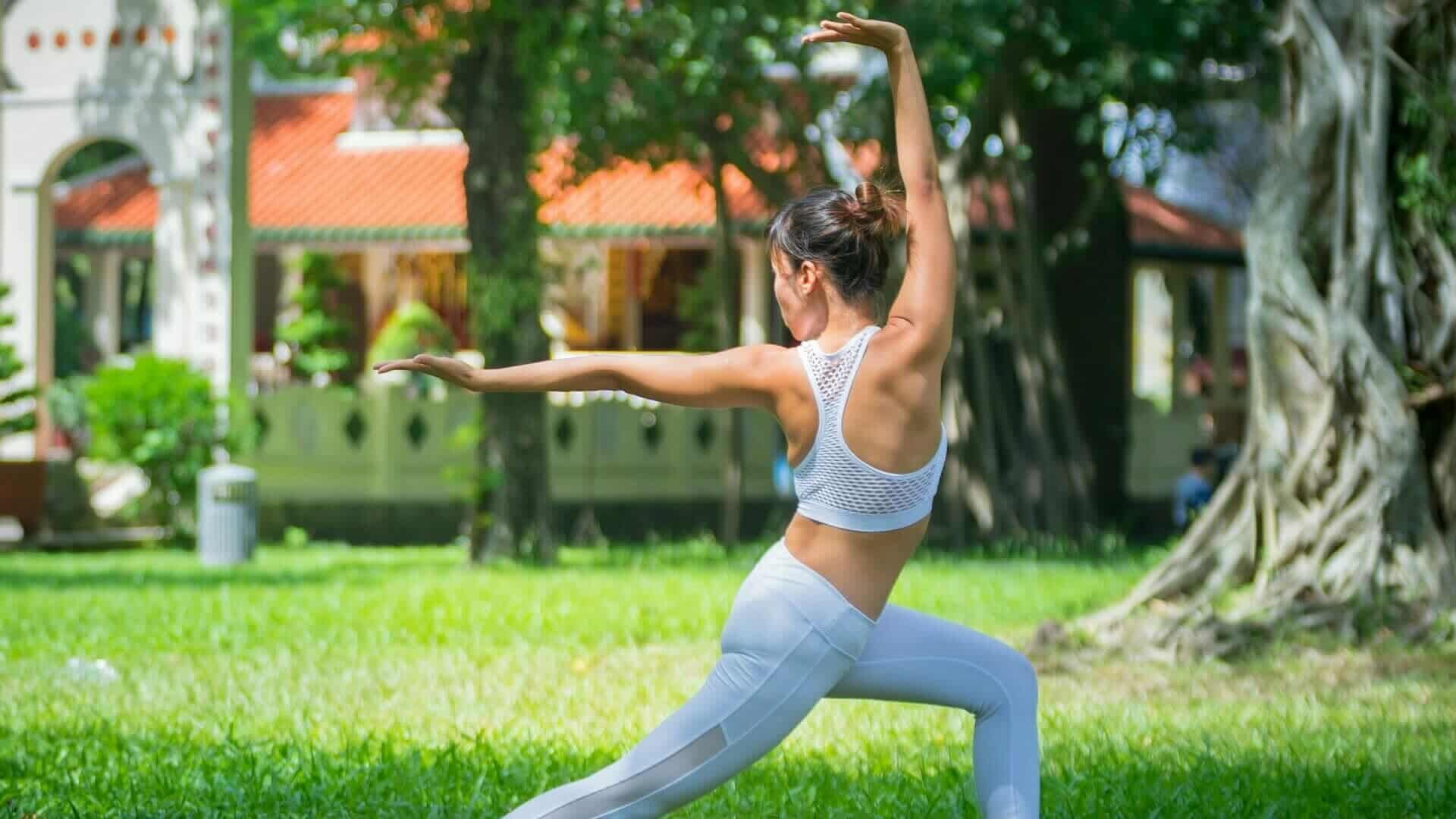
Qigong vs Yoga
Nov 14, 2022Qigong Vs. Yoga Vlog by White Tiger Qigong Instructor Lisa Fabry
Qigong vs Yoga? These two practices are often compared. In this blog, we will discuss how qigong and yoga are similar and how they are different. You can also watch White Tiger Qigong Instructor, Lisa Fabry's free video above to learn more about qigong and yoga. This video will also be the structure of this blog.
Qigong and Yoga
Both Yoga and Qigong are thousands of years old systems of body and mind healing. Both of these practices stem from a time where advanced medicine and health care had not been invented. Even though these practices were created in ancient times, a lot of the knowledge and practice of these two systems is far more advanced than modern medicine, even until today.
Qigong and Yoga are practices that include physical postures, breathwork, meditation, and philosophy. In ancient times, both of these practices shared knowledge. That is why you will see a lot of similarities as well. Of course, culture, environment, and religion may have played some parts in the differences between these two practices. Qigong vs yoga can be very deep in details. You can read more of the deeper comparison of qigong vs yoga in another blog which I also wrote some time ago. You can find that blog linked in here.
There are thousands of different types of qigong and yoga. The benefits of these practices depend on what type of practice you do. In qigong, some systems like martial qigong focus more on power and a strong body. Some systems are medical qigong which is more focused on health and vitality. There are many other types of qigong. For yoga there are different types such as Ashtanga, Hatha, Yin Yoga, and many more.
Let's talk about Qigong
Qigong is an ancient practice that is a balance of movement and meditation to cultivate energy. This practice combines body, breath, and intention to cultivate and store energy to bring about healing. In qigong, the energy is referred to as qi. There are also different kinds of qi in the body. The 3 kinds of qi in the body are called the 3 Treasures. This consists of Jing, Qi, and Shen. Jing is our life source which closely associates with the western scientific term, DNA. Qi is the energy that helps the body function. It is responsible for helping the function of the internal organs, as well as other physiological activities in the body. Shen or spirit closely associates with awareness, consciousness, mind, and intellect.
Qigong combines body, breath, and intention to cultivate and store energy to bring about healing. Some forms of qigong are more physical, however, in White Tiger Qigong, there is an equal emphasis on the body, breath, and spirit. The combination of these 3 things, brings about such rapid, lasting, and powerful results.
What is Yoga?

Yoga is a practice that helps the mind and body. Different types of yoga combine physical postures, breathwork, and meditation. In yoga, the energy is referred to as prana. Yoga in the West tends to concentrate on a more body-focused practice, rather than the traditional emphasis on asana, physical posture, pranayama, breath work, and meditation.
Yoga is known for different poses which one holds for some time, or a series of poses seamlessly flowing. Unlike qigong, the flow of yoga flows from one pose to the other. Qigong's flow shifts from one particular qigong move to another.
Discover Why You Would Love Qigong

If you have not tried qigong but have tried yoga this might help. In Lisa Fabry's vlog, as a yoga instructor herself, she mentioned the reasons why she loves qigong. Let's use these reasons to help and inspire you in your qigong journey and process. Some of these reasons may be the same as yours, and some will also make you realize new things.
- Qigong brings together flowing movements with breathwork and visualization.
- Qigong helps you feel the energy more rapidly and strongly.
- White Tiger Qigong is rooted in the Daoist medical qigong tradition. Which means that it is based on the interconnectedness of nature and human beings. This principle includes the principles of yin and yang and the 5 Elements.
- In qigong, we practice helping heal the body and transform emotions.
- Qigong is good for the body that keeps you fit, strong, and flexible.
- It benefits the body internally as well. It brings health and vitality to the organs.
- Qigong builds up resilience and helps you become calmer during emotions rising and falling or in times of life crisis.
There are many more reasons to love qigong. You might even think of more right now as you are reading this. Feel free to write them down or comment below.
So Which One is Better Qigong or Yoga?
Qigong vs Yoga? These are two very effective and efficient practices. These two practices may have similarities, making them easy to seam together. Their differences based on culture, location, religion, and beliefs help complement each other. Since these two practices have shared knowledge since ancient times, comparisons of these two practices rather help nurture the other than compete.
To answer which one is better, or depends on what goals you have. We all have different perspectives and preferences. You may also have preferences based on what suits you best, physically. Physical limitations may be like if one has some physical limitations in the upper body which prevent one to do some poses in yoga that require inversion. In this sense, qigong will be better since its exercises focuses on standing movements.
Qigong is best for those seeking movement meditation which helps one reach maximum vitality, health, and vigor. Qigong also has more gentle and subtle forms of practices that are best for beginners, elders, or those with physical limitations.
Want to learn more about Qigong and Yoga? You can download our Qigong for Yogis eBook for free.
Try our QiYo Qigong and Yoga Fusion Online Course
To learn more about how to combine these two practices try our QiYo Qigong and Yoga Fusion Online Course. This will help you harmonize these two practices in your daily lifestyle. This course is the best course to help you understand how Qigong and Yoga complement each other.
Let us know through the comments your thoughts.



